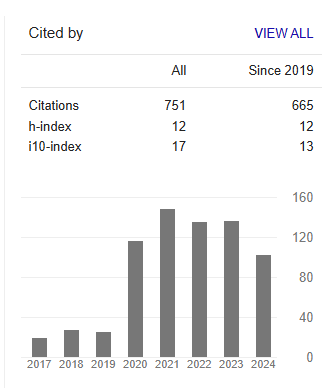Human Papillomavirus Prevention; Challenges for Mothers in Rural Areas in the Uptake of HPV Vaccines among Their Children in a Developing Country
Abstract
Chinedu Anthony Iwu, Ifeanyi Charles Nwagbara, Ikrama Hassan, Paul Kalalolo Biralo, Ebere Ibezim and Ositadinma Mberekpe Pius
Background: The Human Papillomavirus (HPV) poses a significant challenge to global public health due to its association with various cancers and genital warts. The global burden of HPV-related diseases disproportionately affects developing countries. Despite high HPV prevalence, its association with cervical cancer remains low; and vaccination stands as a key preventive tool. The study aims to explore mothers' knowledge and attitudes regarding HPV and its vaccine and also, to identify factors influencing vaccine uptake among their children in a rural community.
Methods: A community-based cross-sectional analytical design using cluster sampling technique to enrol 430 mothers from a rural community in Imo State, Nigeria from 5th November to 10th December 2022. A structured questionnaire was used and bivariate and multivariate analyses were performed at a significance level, p≤ 0.05.
Results: HPV vaccine uptake was 11% with the majority of the mothers exhibiting poor knowledge (73%) and inappropriate attitude (42%) towards HPV and its vaccines. Nevertheless, more than one third of the mothers displayed a high level of willingness to administer the HPV vaccine to their children (37%). However, vaccine uptake appeared to be significantly associated with the mother’s level of knowledge, attitude and willingness to administer the vaccine (p<0.001). Similarly, vaccine uptake appeared to be significantly associated with the mother’s age group (p<0.001), the mother’s religion (p=0.008), the mother’s educational level (p<0.001) and the mother’s monthly income (p=0.01). Similarly, their husband’s educational level (p<0.001) and Occupation (p=0.001) also appeared to be significantly associated with HPV vaccine uptake. Furthermore, mothers between the ages of 19-34 years (aOR: 5.99; p=0.002), catholic (aOR: 2.66; p=0.009), earning a higher income (aOR: 2.37; p=0.029) and whose husbands were civil servants (aOR: 5.96; p=0.025) were significantly more likely to have administered HPV vaccine to their children.
Conclusion: The study underscores the urgency for tailored interventions to improve HPV vaccination uptake. The interventions should address knowledge gaps, promote positive attitudes, dispel misconceptions, and overcome barriers hindering vaccination. These interventions should encompass more than focusing solely on mothers; they should involve broader engagement with families and communities, where mothers play a central and anchoring role.



